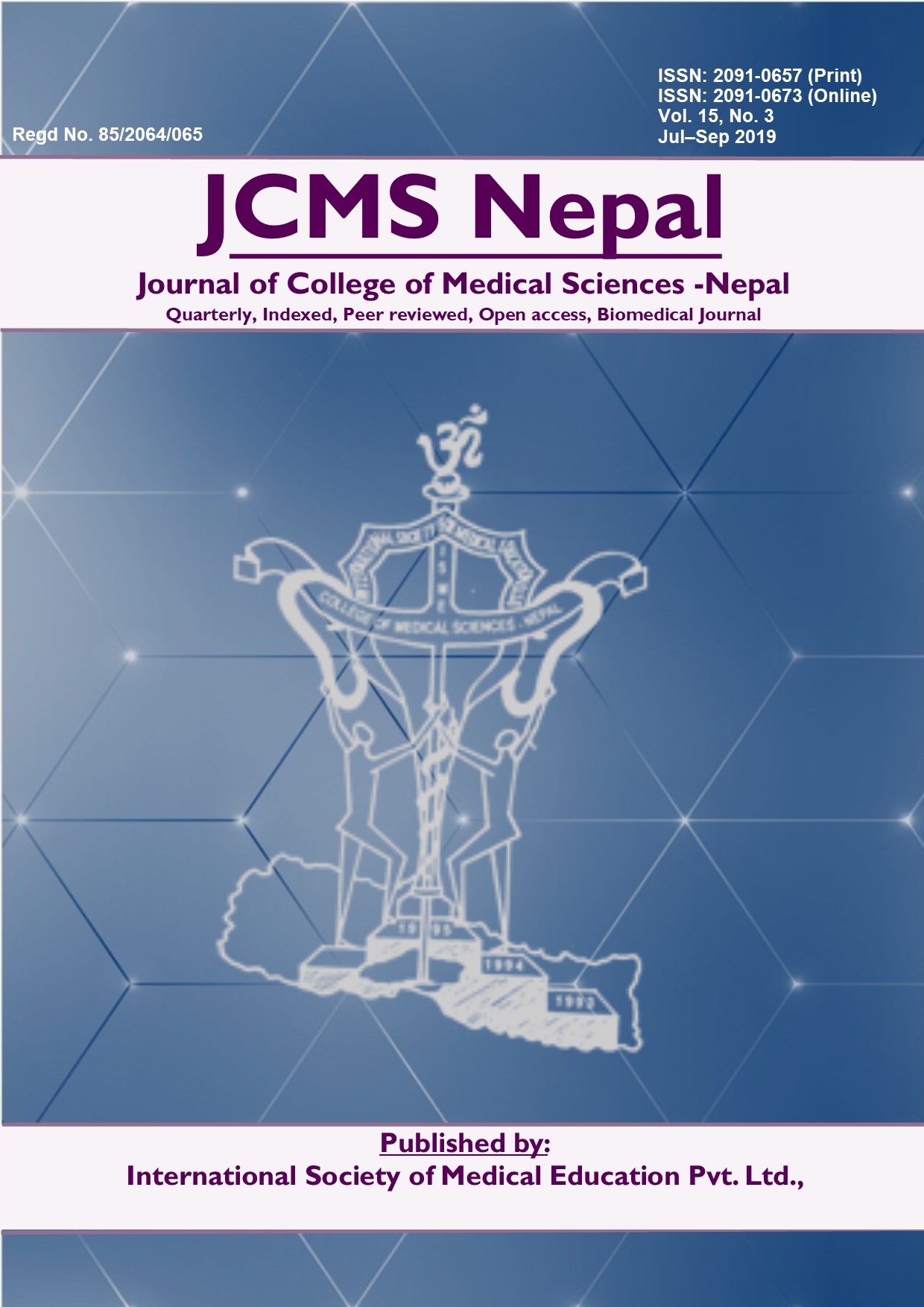Comparative Study of Dexmedetomidine and Fentanyl for Attenuation of Hemodynamic Response to Laryngoscopy and Intubation
DOI:
https://doi.org/10.3126/jcmsn.v15i3.25389Keywords:
Attenuation, dexmedetomidine, fentanyl, intubation, laryngoscopyAbstract
Background: Laryngoscopy and intubation cause hypertension and tachycardia which can lead to myocardial ischemia or cerebrovascular hemorrhage in patients with raised intracranial pressure, hypertension. The objective of this study was to compare the efficacy of dexmedetomidine (1 mcg/kg) and fentanyl (2 mcg/kg) in attenuating hemodynamic response to laryngoscopy and intubation.
Methods: Sixty patients scheduled for elective surgeries under general anaesthesia were randomly divided into two groups: Group D and Group F. Group D received dexmedetomidine 1 mcg/kg and group F received fentanyl 2 mcg/kg intravenously over 10 min prior to induction of anesthesia. All the drugs and techniques of anesthesia were standardized in patients in both the groups. Heart rate, systolic, diastolic and mean arterial pressure were recorded at following intervals: at baseline, after drug administration (at 2 and 5 min), after induction, and at 1, 2 and 5 min after intubation.
Results: Heart rate and blood pressure was found to be significantly lower in dexmedetomidine group as compared to fentanyl group at 1, 2 and 5 min after intubation.
Conclusions: Dexmedetomidine 1 mcg/kg is superior to fentanyl 2 mcg/kg for attenuation of hemodynamic response to laryngoscopy and intubation.
Downloads
Downloads
Published
How to Cite
Issue
Section
License
This license enables reusers to copy and distribute the material in any medium or format in unadapted form only, for noncommercial purposes only, and only so long as attribution is given to the creator.




